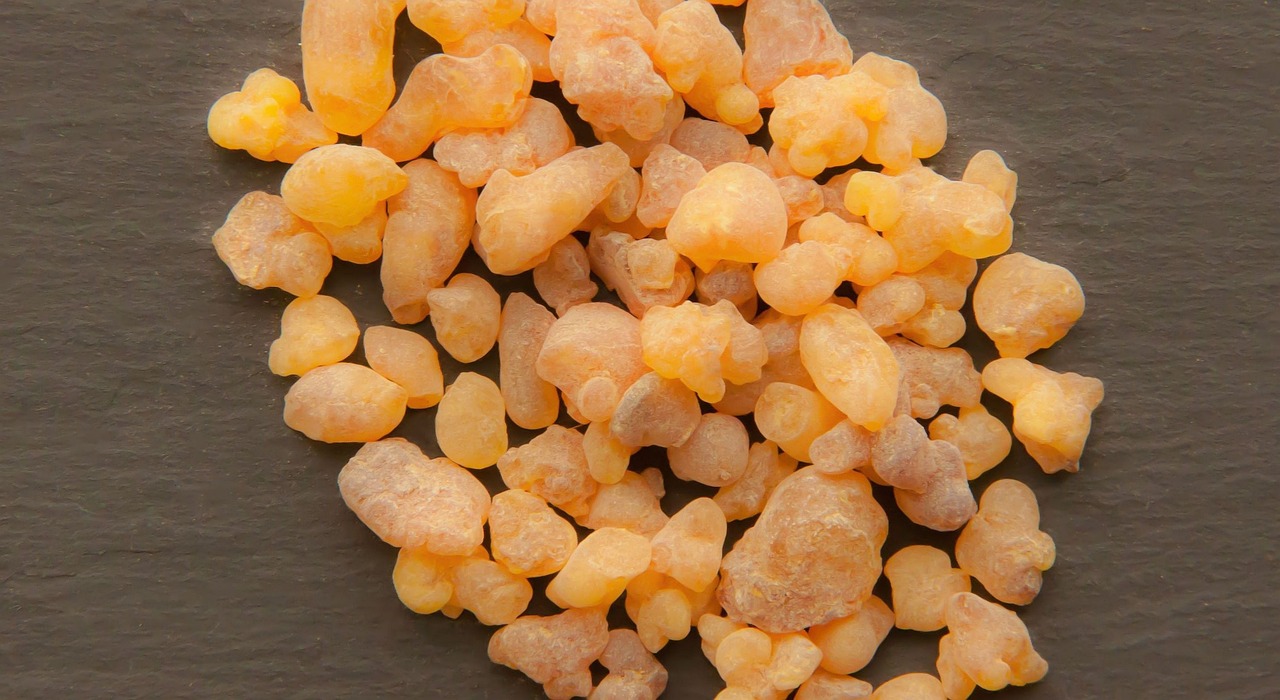This article delves into the numerous benefits, uses, and scientific insights regarding St. John’s Wort, a well-known herbal remedy celebrated for its mood-enhancing properties, particularly in treating mild to moderate depression.
What is St. John’s Wort?
St. John’s Wort, scientifically referred to as Hypericum perforatum, is a flowering plant that has been utilized for centuries due to its medicinal properties. It is particularly recognized for its ability to enhance mood and alleviate the symptoms associated with depression.
How Does St. John’s Wort Work?
Understanding the mechanism by which St. John’s Wort operates is crucial. It primarily affects neurotransmitters in the brain, including serotonin, dopamine, and norepinephrine, all of which are vital for regulating mood.
Active Compounds in St. John’s Wort
The primary active compounds in St. John’s Wort, notably hypericin and hyperforin, are believed to contribute significantly to its antidepressant effects by inhibiting the reuptake of these neurotransmitters.
Clinical Evidence Supporting Its Use
Numerous clinical studies have examined the effectiveness of St. John’s Wort in treating depression. Many of these studies report positive outcomes, indicating its efficacy is comparable to that of conventional antidepressants, especially for mild to moderate cases.
Potential Benefits of St. John’s Wort
- Reduction of Anxiety: Research suggests that St. John’s Wort may alleviate anxiety symptoms, making it an attractive option for those seeking natural remedies.
- Improvement in Sleep Quality: Some studies indicate that St. John’s Wort can enhance sleep quality, which is often disrupted in individuals dealing with depression and anxiety.
Possible Side Effects and Interactions
While generally regarded as safe, St. John’s Wort can lead to side effects and may interact with various medications. Therefore, consulting a healthcare provider before use is highly recommended.
How to Use St. John’s Wort
St. John’s Wort is available in various forms, including capsules, teas, and tinctures. It is essential to understand the proper dosage and preparation methods to maximize its benefits and minimize potential risks.
Conclusion: Is St. John’s Wort Right for You?
St. John’s Wort offers a promising natural alternative for mood enhancement and depression management. However, it is crucial to consider its benefits alongside potential side effects and interactions before incorporating it into your health regimen.

What is St. John’s Wort?
St. John’s Wort, scientifically recognized as Hypericum perforatum, is a vibrant flowering plant that has been utilized for centuries due to its significant medicinal properties. This herbal remedy is primarily known for its ability to enhance mood and alleviate symptoms associated with depression.
Traditionally, St. John’s Wort has been used in various cultures, often as a natural treatment for emotional and psychological disturbances. Its popularity has surged in recent years, particularly among individuals seeking alternatives to conventional pharmaceuticals for managing mild to moderate depression.
People typically consume St. John’s Wort in various forms, including capsules, teas, and tinctures. Each method of preparation may offer different benefits, catering to individual preferences and health needs.
Research indicates that St. John’s Wort works by influencing key neurotransmitters in the brain, such as serotonin, dopamine, and norepinephrine. These neurotransmitters are crucial for regulating mood, and their balanced levels can lead to improved emotional well-being.
In addition to its mood-enhancing effects, St. John’s Wort may also provide benefits such as:
- Reducing anxiety: Some studies suggest that it can help alleviate symptoms of anxiety disorders.
- Improving sleep quality: It may assist those whose sleep is disrupted by depression or anxiety.
- Anti-inflammatory effects: The plant has been noted for its potential to reduce inflammation in the body.
While St. John’s Wort is generally regarded as safe, it is important to be aware of potential side effects, which may include:
- Gastrointestinal upset
- Fatigue
- Dizziness
- Photosensitivity
Moreover, it can interact with various medications, including antidepressants and birth control pills, so consulting a healthcare provider before starting any new treatment is essential.
St. John’s Wort remains a popular natural alternative for those looking to enhance their mood and manage depression. However, it is crucial to consider both its potential benefits and risks, ensuring informed and safe usage.

How Does St. John’s Wort Work?
Understanding how St. John’s Wort functions is essential for appreciating its potential benefits. This herbal remedy has garnered attention for its ability to influence various neurotransmitters in the brain, which are critical in regulating mood and emotional well-being.
St. John’s Wort, or Hypericum perforatum, operates primarily by modulating the levels of key neurotransmitters, including serotonin, dopamine, and norepinephrine. These neurotransmitters play a pivotal role in mood stabilization and the overall emotional state of an individual.
Research indicates that the active compounds in St. John’s Wort, particularly hypericin and hyperforin, are integral to its antidepressant effects. These compounds work by inhibiting the reuptake of neurotransmitters, thereby increasing their availability in the brain. This mechanism is similar to that of many conventional antidepressants, making St. John’s Wort a viable natural alternative for some individuals.
- Hypericin: This flavonoid is believed to enhance serotonin levels, contributing to improved mood and emotional balance.
- Hyperforin: Known for its ability to boost both serotonin and dopamine activity, hyperforin adds to the herb’s potential as an antidepressant.
Moreover, studies have shown that St. John’s Wort may be particularly effective for individuals suffering from mild to moderate depression. Its natural approach offers a compelling option for those who prefer to avoid pharmaceutical interventions.
In conclusion, understanding the mechanism of action of St. John’s Wort provides valuable insights into its role as a natural mood enhancer. By influencing neurotransmitter levels, this herbal remedy offers a promising alternative for individuals seeking to improve their mental health.
Active Compounds in St. John’s Wort
play a crucial role in understanding its therapeutic effects, particularly in the treatment of mood disorders. The primary compounds identified in this herbal remedy include hypericin and hyperforin, each contributing uniquely to its antidepressant properties.
Hypericin is a polyphenolic compound that has garnered significant attention for its potential to enhance mood. Research suggests that hypericin may work by inhibiting the reuptake of neurotransmitters such as serotonin, which is a key player in regulating mood. By preventing the reabsorption of serotonin, hypericin increases its availability in the brain, potentially leading to an uplift in mood and a reduction in depressive symptoms.
On the other hand, hyperforin has also been identified as a vital component in St. John’s Wort. It is believed to enhance the activity of both serotonin and dopamine, another neurotransmitter linked to feelings of pleasure and reward. The dual action of hyperforin on these neurotransmitters provides a compelling argument for its effectiveness as a natural antidepressant.
| Active Compound | Mechanism of Action | Potential Benefits |
|---|---|---|
| Hypericin | Inhibits serotonin reuptake | Elevates mood, alleviates depression |
| Hyperforin | Enhances serotonin and dopamine activity | Improves mood, increases feelings of pleasure |
In summary, the active compounds in St. John’s Wort, particularly hypericin and hyperforin, are essential for its antidepressant effects. By influencing neurotransmitter levels in the brain, these compounds offer a natural alternative for individuals seeking relief from mild to moderate depression. However, it is always recommended to consult with a healthcare provider before starting any new treatment.
Hypericin: The Key Ingredient
Hypericin is a significant compound found in St. John’s Wort (Hypericum perforatum), a plant renowned for its mood-enhancing properties. This flavonoid is a focal point of research due to its potential role in improving mental health, particularly in the treatment of depression. Understanding how hypericin works can provide valuable insights into its effectiveness as a natural remedy.
Research suggests that hypericin may influence the levels of serotonin, a key neurotransmitter involved in mood regulation. By potentially increasing serotonin levels, hypericin may help alleviate symptoms of depression, making it an appealing option for those seeking alternatives to conventional antidepressants. Studies have shown that individuals taking St. John’s Wort often report improvements in mood and overall well-being.
In addition to its effects on serotonin, hypericin is believed to have other mechanisms of action. It may also impact other neurotransmitters, such as dopamine and norepinephrine, which are crucial for maintaining emotional balance. This multifaceted approach could explain why St. John’s Wort has been shown to be effective in treating mild to moderate depression.
| Key Benefits of Hypericin | Mechanism of Action |
|---|---|
| Improves mood | Increases serotonin levels |
| Reduces anxiety | Modulates neurotransmitters |
| Enhances overall well-being | Supports emotional balance |
Despite its potential benefits, it is essential to approach the use of hypericin with caution. Like any herbal remedy, it may cause side effects and interact with other medications. Consulting with a healthcare provider before starting any new treatment is recommended to ensure safety and efficacy.
In conclusion, hypericin stands out as a key ingredient in St. John’s Wort, showcasing promising effects on mood enhancement and depression treatment. Its ability to influence serotonin and other neurotransmitters highlights its potential as a natural alternative for those seeking relief from depressive symptoms.
Hyperforin: A Potent Antidepressant
Hyperforin is a remarkable compound found in St. John’s Wort, known for its significant role in enhancing mood and alleviating symptoms of depression. This natural antidepressant has gained attention due to its ability to influence neurotransmitter activity, particularly serotonin and dopamine. By inhibiting the reuptake of these critical neurotransmitters, hyperforin contributes to a more balanced mood and emotional well-being.
Research indicates that hyperforin acts on various neurotransmitter systems, including the serotonergic and dopaminergic pathways. This multifaceted action not only helps to lift mood but may also reduce feelings of anxiety and improve overall mental health. The compound’s effectiveness has been supported by numerous clinical studies, which suggest that it can be as effective as conventional antidepressants for individuals suffering from mild to moderate depression.
Moreover, hyperforin’s potential extends beyond mood enhancement. It has been shown to possess anti-inflammatory properties, which may further support mental health by reducing inflammation-related symptoms. This is particularly relevant, as inflammation has been linked to various mental health disorders. The dual action of hyperforin in both mood regulation and inflammation reduction makes it a compelling candidate for those seeking natural treatment options.
In conclusion, hyperforin stands out as a potent antidepressant within St. John’s Wort, offering a natural alternative for individuals struggling with mood disorders. Its ability to enhance serotonin and dopamine activity, coupled with its anti-inflammatory effects, underscores its potential as a valuable tool in mental health management. As with any supplement, it is essential to consult with a healthcare provider to ensure safe and effective use, especially considering possible interactions with other medications.
Clinical Evidence Supporting Its Use
Clinical Evidence Supporting St. John’s Wort’s Use
Numerous clinical studies have investigated the effectiveness of St. John’s Wort in treating depression, revealing promising results that are often comparable to those of conventional antidepressants. These studies primarily focus on individuals suffering from mild to moderate depression, where St. John’s Wort has shown to be particularly beneficial.
One of the most comprehensive meta-analyses conducted included data from several clinical trials, highlighting that St. John’s Wort was as effective as standard antidepressants for treating mild to moderate depression. The findings suggest that patients using this herbal remedy experienced significant improvements in their mood and overall well-being.
The effectiveness of St. John’s Wort can be attributed to its active compounds, such as hypericin and hyperforin, which have been shown to influence neurotransmitter levels in the brain. These compounds work by inhibiting the reuptake of serotonin, dopamine, and norepinephrine, thereby enhancing mood and alleviating depressive symptoms.
Furthermore, a notable study published in a leading psychiatric journal indicated that patients who took St. John’s Wort reported fewer side effects compared to those on traditional antidepressants. This aspect makes it an appealing option for individuals who are concerned about the adverse effects often associated with pharmaceutical treatments.
While the positive results are compelling, it is essential to recognize that not all studies have reached the same conclusion. Some research indicates that St. John’s Wort may not be effective for severe depression, underscoring the importance of consulting with a healthcare provider before starting any new treatment regimen.
In conclusion, the clinical evidence supporting the use of St. John’s Wort as a treatment for mild to moderate depression is substantial, with many studies affirming its efficacy. However, as with any treatment, individual responses may vary, and it is crucial to approach its use with informed caution.

Potential Benefits of St. John’s Wort
St. John’s Wort, or Hypericum perforatum, is not only celebrated for its mood-enhancing properties but also for its potential health benefits that extend beyond mental well-being. This herbal remedy has gained popularity due to its multifaceted effects, which include anxiety reduction, improved sleep quality, and anti-inflammatory properties.
- Reducing Anxiety: Research suggests that St. John’s Wort may help alleviate symptoms of anxiety. Its calming effects can be particularly beneficial for individuals who experience heightened stress levels or anxiety disorders. By influencing neurotransmitter activity, it may provide a natural alternative for those seeking relief without the side effects associated with conventional medications.
- Improving Sleep Quality: Many individuals struggling with anxiety or depression also face sleep disturbances. St. John’s Wort may contribute to better sleep quality by addressing the underlying emotional issues that hinder restful sleep. Some studies indicate that it can help regulate sleep patterns, leading to a more restorative sleep experience.
- Anti-Inflammatory Effects: Beyond its mental health benefits, St. John’s Wort is also noted for its potential anti-inflammatory properties. This can be particularly advantageous for individuals suffering from chronic pain or inflammatory conditions. By reducing inflammation, it may enhance overall health and well-being.
In conclusion, St. John’s Wort is a versatile herbal remedy that offers a range of potential health benefits. Its ability to reduce anxiety, improve sleep quality, and provide anti-inflammatory effects makes it a valuable option for those seeking natural alternatives for enhancing their well-being. However, it is crucial to consult with a healthcare provider before starting any new treatment, especially for those on medication or with existing health conditions.
St. John’s Wort for Anxiety Relief
St. John’s Wort has garnered attention not only for its mood-enhancing properties but also for its potential in alleviating anxiety symptoms. This makes it a compelling option for those seeking natural remedies for both mood and anxiety disorders. With a rich history in herbal medicine, St. John’s Wort is known scientifically as Hypericum perforatum and has been utilized for centuries to promote emotional well-being.
Anxiety disorders are prevalent and can significantly impact daily life. Symptoms often include:
- Excessive worrying
- Restlessness
- Fatigue
- Difficulty concentrating
- Sleep disturbances
Research suggests that St. John’s Wort may help regulate neurotransmitters such as serotonin, which plays a vital role in mood and anxiety. By enhancing serotonin levels, this herbal remedy could potentially mitigate anxiety symptoms, providing a more balanced emotional state.
Several studies have explored the efficacy of St. John’s Wort in treating anxiety. A meta-analysis indicated that individuals using St. John’s Wort experienced a significant reduction in anxiety symptoms compared to those who took a placebo. This evidence positions St. John’s Wort as a viable option for individuals looking for alternative treatments.
While St. John’s Wort is generally considered safe, it is essential to consult with a healthcare professional before starting any new treatment, especially for those already on medications. Potential interactions with prescribed drugs can occur, which may diminish their effectiveness.
In conclusion, St. John’s Wort presents a promising natural alternative for managing anxiety alongside its mood-enhancing benefits. Those interested in exploring this herbal remedy should consider its potential benefits while remaining mindful of possible side effects and drug interactions.
Impact on Sleep Quality
Sleep is a vital component of overall health, and its quality can significantly affect mood and emotional well-being. Individuals suffering from depression and anxiety often experience disrupted sleep patterns, leading to a vicious cycle of worsening mental health. In this context, St. John’s Wort emerges as a potential natural remedy that may enhance sleep quality.
Research indicates that St. John’s Wort may help regulate sleep disturbances commonly associated with mood disorders. A number of studies have shown that this herbal supplement can lead to improvements in both the duration and quality of sleep. For instance, one study found that participants who took St. John’s Wort reported fewer instances of insomnia and better overall sleep satisfaction compared to those who did not.
The mechanism behind this sleep-enhancing effect may relate to the herb’s influence on neurotransmitters. By modulating levels of serotonin and other key neurotransmitters, St. John’s Wort may help restore a more balanced sleep cycle. This is particularly beneficial for those whose sleep is frequently interrupted by anxiety or depressive thoughts.
| Benefits of St. John’s Wort on Sleep | Details |
|---|---|
| Improved Sleep Duration | Users often report longer periods of uninterrupted sleep. |
| Enhanced Sleep Quality | Many experience deeper and more restorative sleep. |
| Reduction in Nighttime Anxiety | Helps alleviate anxiety that can disrupt sleep. |
While the potential benefits of St. John’s Wort for sleep improvement are promising, it is essential to approach its use with caution. Individuals should consult healthcare professionals before starting any new supplement, especially those already taking medications for mood disorders.
In conclusion, St. John’s Wort may serve as a valuable ally for those struggling with sleep issues related to depression and anxiety. By promoting better sleep quality, it can contribute to a more positive outlook and overall well-being.

Possible Side Effects and Interactions
While St. John’s Wort is widely recognized for its potential benefits in enhancing mood and alleviating symptoms of depression, it is important to approach its use with caution. This herbal remedy is generally considered safe, but like any supplement, it can lead to side effects and may interact with various medications.
Understanding Potential Side Effects
Users of St. John’s Wort may experience a range of side effects, which can include:
- Gastrointestinal Upset: Some individuals report nausea, diarrhea, or an upset stomach.
- Fatigue: A feeling of tiredness may occur, particularly during the initial stages of use.
- Dizziness: Some users have noted lightheadedness or dizziness.
- Photosensitivity: Increased sensitivity to sunlight can lead to skin rashes or burns.
Drug Interactions to Be Aware Of
St. John’s Wort is known to interact with a variety of medications, which can alter their effectiveness or lead to unwanted side effects. Notable interactions include:
- Antidepressants: When combined with other antidepressants, it may lead to serotonin syndrome, a potentially life-threatening condition.
- Birth Control Pills: St. John’s Wort may reduce the effectiveness of hormonal contraceptives, increasing the risk of unintended pregnancy.
- Anticoagulants: It can interact with blood thinners, potentially increasing the risk of clotting issues.
Consulting a Healthcare Provider
Given the potential for side effects and drug interactions, it is crucial to consult with a healthcare provider before starting St. John’s Wort. A medical professional can provide personalized advice and help assess whether this herbal remedy is suitable for your individual health needs.
Conclusion
In summary, while St. John’s Wort can offer mood-enhancing benefits, it is essential to be aware of its possible side effects and interactions with other medications. Prioritizing safety through professional guidance can help ensure a positive experience with this natural remedy.
Common Side Effects
While St. John’s Wort is widely recognized for its mood-enhancing properties, it is essential to be aware of potential side effects that may arise during its use. Users may experience a range of adverse effects, which can vary in severity and frequency. The most commonly reported side effects include:
- Gastrointestinal Upset: Some individuals may experience digestive issues such as nausea, diarrhea, or abdominal discomfort. These symptoms can be bothersome and may require adjustment in dosage or discontinuation of use.
- Fatigue: A feeling of tiredness or lethargy may occur, particularly when starting the supplement. This can affect daily activities and overall energy levels.
- Dizziness: Users might report instances of dizziness or lightheadedness, which can be disorienting and impact balance.
- Photosensitivity: Increased sensitivity to sunlight is a significant concern for some users. This can lead to a higher risk of sunburn or skin reactions, necessitating the use of sunscreen or protective clothing when outdoors.
These side effects underscore the importance of monitoring one’s response to St. John’s Wort. It is advisable for users to keep a journal documenting their experiences, which can help in discussions with healthcare providers. Additionally, individuals with pre-existing conditions or those taking other medications should consult their healthcare professional before starting St. John’s Wort to avoid potential complications.
Overall, while St. John’s Wort can provide significant mood-enhancing benefits, being aware of and managing these side effects is crucial for a safe and effective experience.
Drug Interactions to Consider
St. John’s Wort is a widely recognized herbal remedy known for its mood-enhancing properties, particularly in the treatment of mild to moderate depression. However, it is crucial to be aware of its potential interactions with various medications, which can significantly impact their effectiveness and safety. Here, we will explore some of the key interactions associated with St. John’s Wort.
| Medication Type | Potential Interaction | Effect |
|---|---|---|
| Antidepressants | May reduce the effectiveness of SSRIs and other antidepressants | Increased risk of depression symptoms |
| Birth Control Pills | Can decrease the effectiveness of hormonal contraceptives | Increased risk of unintended pregnancy |
| Anticoagulants | May affect blood-thinning medications like warfarin | Increased risk of blood clots or bleeding |
| Anti-HIV Medications | Can reduce the effectiveness of protease inhibitors | Potential treatment failure |
These interactions highlight the importance of consulting with a healthcare provider before starting St. John’s Wort, especially if you are taking any of the medications listed above. It is essential to ensure that your treatment plan is safe and effective.
In addition to the interactions mentioned, St. John’s Wort may also interact with various other medications, including those for epilepsy and certain cancer treatments. Therefore, it is advisable to disclose all medications and supplements you are taking to your healthcare provider to avoid any adverse effects.
In conclusion, while St. John’s Wort can be beneficial for mood enhancement, it is vital to approach its use with caution and awareness of potential drug interactions. Always prioritize safety by seeking professional guidance before incorporating this herbal remedy into your routine.

How to Use St. John’s Wort
St. John’s Wort, a well-known herbal remedy for mood enhancement, is available in a variety of forms, including capsules, teas, and tinctures. Each form has its unique advantages and can cater to different preferences and lifestyles. Understanding how to use St. John’s Wort effectively is essential for maximizing its benefits and minimizing any potential risks.
Available Forms of St. John’s Wort
- Capsules: These are a convenient option for those who prefer a quick and easy method of consumption. Standardized extracts in capsule form ensure consistent dosing.
- Teas: Brewing St. John’s Wort as a tea can be a soothing ritual. The infusion allows for the extraction of beneficial compounds, although the potency may vary compared to capsules.
- Tinctures: Liquid extracts offer a concentrated form of the herb, making it easier to adjust dosages. Tinctures can be added to water or taken directly.
Proper Dosage Guidelines
Determining the right dosage is crucial for effectiveness. Most clinical studies suggest a range of 300 to 900 mg of standardized extract per day. It is advisable to start at the lower end of the dosage range and gradually increase it while monitoring how your body responds.
Preparation Methods for Maximum Efficacy
Different preparation methods can influence the efficacy of St. John’s Wort:
- Tea: To prepare, steep 1-2 teaspoons of dried St. John’s Wort in boiling water for about 10-15 minutes.
- Tinctures: Typically, a dose of 1-2 ml taken 2-3 times daily is recommended.
- Capsules: Follow the instructions on the packaging, ensuring the extract is standardized to contain 0.3% hypericin.
Consultation with Healthcare Providers
Before starting St. John’s Wort, it is essential to consult with a healthcare provider, especially if you are taking other medications. This ensures safety and helps avoid potential interactions.
In conclusion, St. John’s Wort can be a beneficial herbal remedy when used correctly. By selecting the appropriate form and dosage, individuals can harness its mood-enhancing properties effectively.
Recommended Dosage Guidelines
Understanding the appropriate dosage of St. John’s Wort is crucial for achieving its full therapeutic benefits. Most scientific studies recommend a daily dosage range of 300 to 900 mg of standardized extract to optimize results. This range is significant because it aligns with the concentration of active compounds in the extract, such as hypericin and hyperforin, which are known for their mood-enhancing properties.
When considering dosage, it is essential to start at the lower end of the range, particularly for individuals who are new to herbal supplements. Gradually increasing the dosage allows the body to adjust and helps in monitoring any potential side effects. The effectiveness of St. John’s Wort can vary based on individual factors such as body weight, metabolism, and overall health.
Moreover, the form in which St. John’s Wort is consumed can influence its effectiveness. For example, capsules and tinctures may offer different absorption rates compared to teas. It is advisable to follow the manufacturer’s instructions or consult with a healthcare provider to determine the most suitable form and dosage for your needs.
In addition to dosage, timing can also play a role in the effectiveness of St. John’s Wort. Taking the supplement at the same time each day can help maintain consistent levels of the active compounds in the bloodstream, potentially enhancing its mood-lifting effects.
In conclusion, while St. John’s Wort shows promise as a natural remedy for mood enhancement, adhering to recommended dosage guidelines is vital for maximizing its benefits and minimizing risks. Always consult with a healthcare professional before starting any new supplement regimen.
Preparation Methods for Maximum Efficacy
When it comes to harnessing the benefits of St. John’s Wort, the method of preparation can significantly influence its effectiveness. Each preparation method—be it tea, tinctures, or capsules—offers distinct advantages that cater to individual preferences and needs.
- Tea: Brewing St. John’s Wort as a tea is one of the oldest methods, allowing users to enjoy the herb in a soothing beverage. The hot water extraction process can help release beneficial compounds, making it an excellent option for those who appreciate traditional remedies.
- Tinctures: Tinctures provide a concentrated form of St. John’s Wort, often extracted using alcohol or glycerin. This method results in a potent product that is easily absorbed by the body, making it suitable for users seeking a quick and effective solution.
- Capsules: For those who prefer a more straightforward approach, capsules offer convenience and precise dosing. They are particularly beneficial for individuals who may not enjoy the taste of tea or tinctures but still want to experience the herb’s mood-enhancing properties.
Each of these preparation methods allows users to tailor their experience according to their personal preferences and lifestyle. For instance, while tea can be a calming ritual, tinctures might be more appealing for those on the go. Capsules, on the other hand, are ideal for individuals who prioritize convenience without compromising on efficacy.
Ultimately, the choice of preparation method can enhance the overall experience and effectiveness of St. John’s Wort. By selecting the option that best fits their lifestyle and preferences, users can optimize the benefits of this remarkable herb.
In conclusion, understanding the various preparation methods is crucial for anyone looking to utilize St. John’s Wort effectively. Whether through the soothing ritual of tea, the potency of tinctures, or the convenience of capsules, each method offers unique advantages that can cater to individual needs.

Conclusion: Is St. John’s Wort Right for You?
St. John’s Wort, known scientifically as Hypericum perforatum, has gained recognition as a potential natural remedy for mood enhancement and the management of depression. Its use dates back centuries, with traditional applications focusing on its ability to improve emotional well-being. However, before considering this herbal treatment, it is crucial to carefully evaluate both its benefits and potential risks.
One of the primary advantages of St. John’s Wort is its ability to alleviate symptoms of mild to moderate depression. Many studies suggest that it may be as effective as some conventional antidepressants, particularly for those who prefer a natural approach. Additionally, its potential to reduce anxiety and improve sleep quality adds to its appeal as a holistic treatment option.
However, users must remain vigilant regarding the side effects that may accompany its use. Commonly reported issues include gastrointestinal disturbances, fatigue, and increased sensitivity to sunlight. Furthermore, St. John’s Wort has the potential to interact with various medications, such as antidepressants and birth control pills, which could either diminish their effectiveness or lead to adverse reactions.
Before starting any regimen with St. John’s Wort, it is essential to consult with a healthcare provider. This ensures that it is a suitable choice based on individual health conditions and current medications. Personal responses to herbal treatments can vary significantly, making professional guidance invaluable.
In conclusion, while St. John’s Wort presents a promising natural alternative for mood enhancement, it is vital to weigh its benefits against potential side effects and interactions. By doing so, individuals can make informed decisions about their mental health and well-being.
















